Forget about the AI features of iPhone 16
![]() 09/10 2024
09/10 2024
![]() 442
442
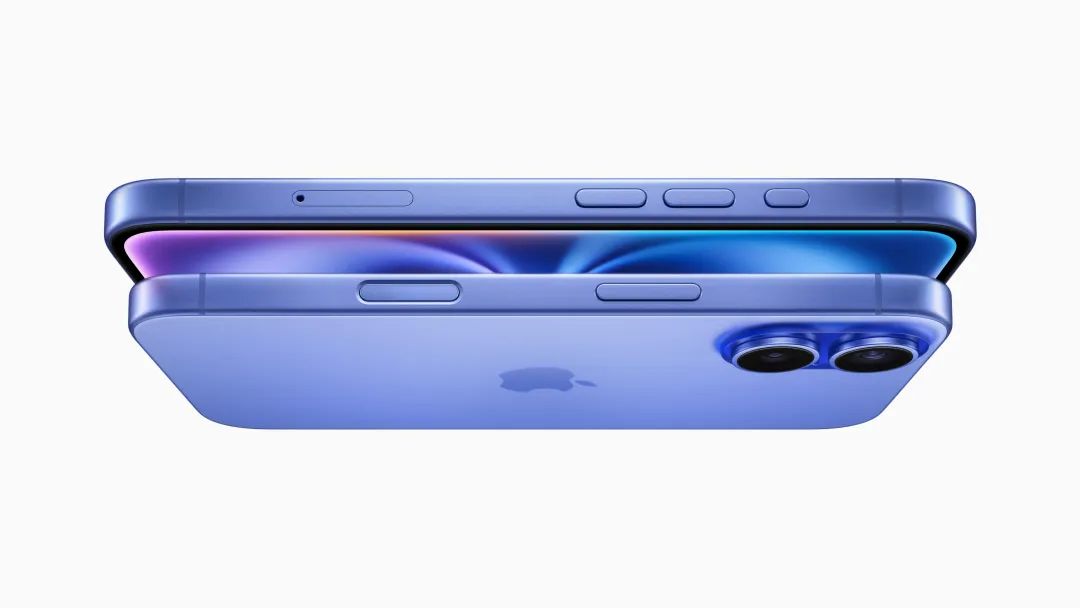
"The launch of Apple Intelligence will depend on regulatory approval."
Author | Xue Xingxing Editor | Jiang Jiao Cover | Apple
On the morning of September 10, Beijing time, Apple unveiled its latest flagship smartphone, the iPhone 16 series. As predicted, AI emerged as the biggest highlight of this generation of iPhone upgrades. During the 1 hour and 40-minute event, Apple dedicated nearly half of the time to showcasing the power of Apple Intelligence. According to Cook, the new iPhone is built from the ground up for Apple Intelligence.
These AI-related upgrades are essentially a repetition of those announced at the WWDC conference in June, and are still in the pipeline. The iPhone 16 series will officially go on sale on the 20th of this month, but the first system version supporting Apple Intelligence won't be available until next month, and it will only support some features.
Apart from some English-speaking countries, Apple Intelligence is not yet available in other language regions, including China. Apple's iPhone pre-order interface in China displays a small line of text stating, "Apple Intelligence is not currently available for iPhone models purchased in mainland China." Apple stated that the launch of Apple Intelligence will depend on regulatory approval.

Screenshot from Apple's official website
Cook believes that the inclusion of AI features in the iPhone will attract more consumers to purchase it, alleviating the global sluggish sales of the iPhone. Some market analysts are taking a wait-and-see approach to the iPhone 16 series, partly due to the long wait for Apple Intelligence, as Android phone brands including Samsung have already implemented AI features.
Apple's stock price fell initially but then rose yesterday. The largest intraday decline occurred after the announcement of the new iPhone, dropping from $220.72 to $216.96 before gradually recovering to close slightly up by 0.041%.
01 | Camera upgrades may be more substantial than AI
Since 2020, Apple has abandoned its decade-long tradition of live broadcasts for its product launches, opting instead for prerecorded videos. Although digital media outlets worldwide were still invited to Apple's headquarters, they watched prerecorded videos on-site—the only advantage being early hands-on access to the new iPhones.
This launch event was no exception, with even less screen time for Cook. He primarily served as a host, with product line leaders introducing various products, including the Apple Watch, AirPods, and the iPhone 16 series.
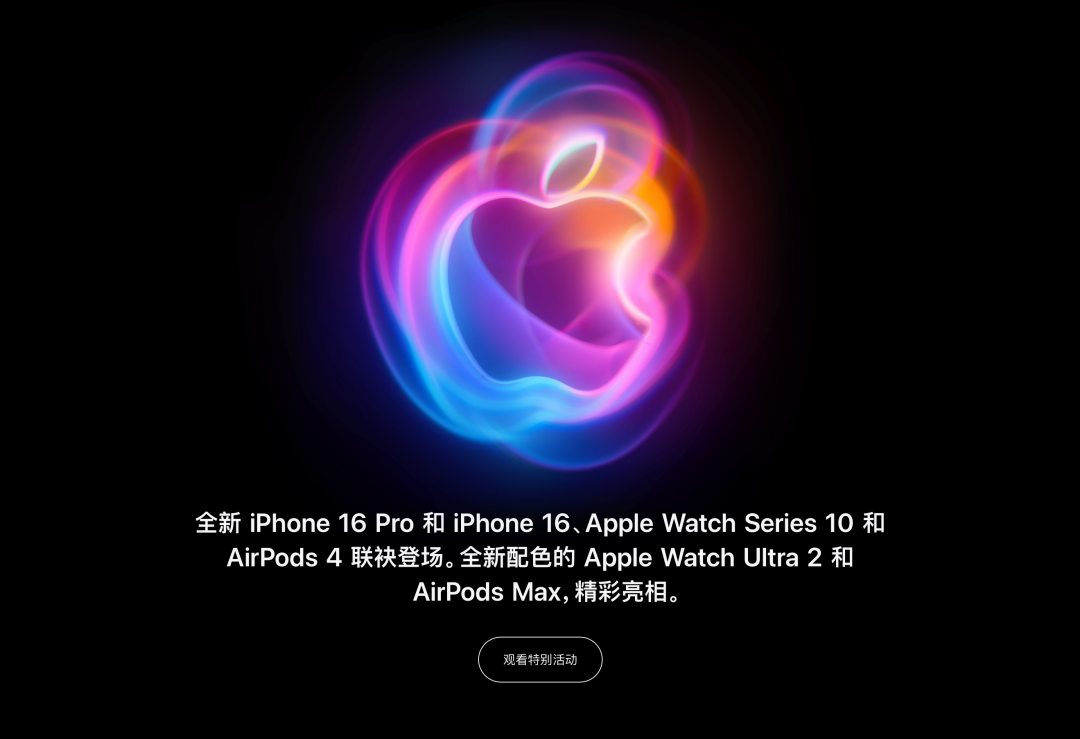
Screenshot from Apple's official website
The Apple Watch and AirPods product lines mostly received routine upgrades. For example, the latest Apple Watch Series 10 boasts a larger screen, lighter weight, and longer battery life. The Apple Watch Ultra 2, introduced last year, adds a Space Black Titanium finish, but otherwise, there are few eye-catching changes.
The biggest update to the AirPods 4 is the addition of Active Noise Cancellation (ANC), with the same price as the previous generation, although the noise-canceling effect still lags behind the AirPods Pro. The base version of the AirPods 4 without ANC has had its price reduced by 400 yuan. The poorly-selling AirPods Max, released last year, were barely mentioned at the event, with only a few new color options highlighted.
The iPhone 16 series saw the most significant changes, but they were not in its appearance but rather in its built-in Apple Intelligence. Similar to the WWDC conference, Apple aimed to embed generative AI services into every aspect of the system.
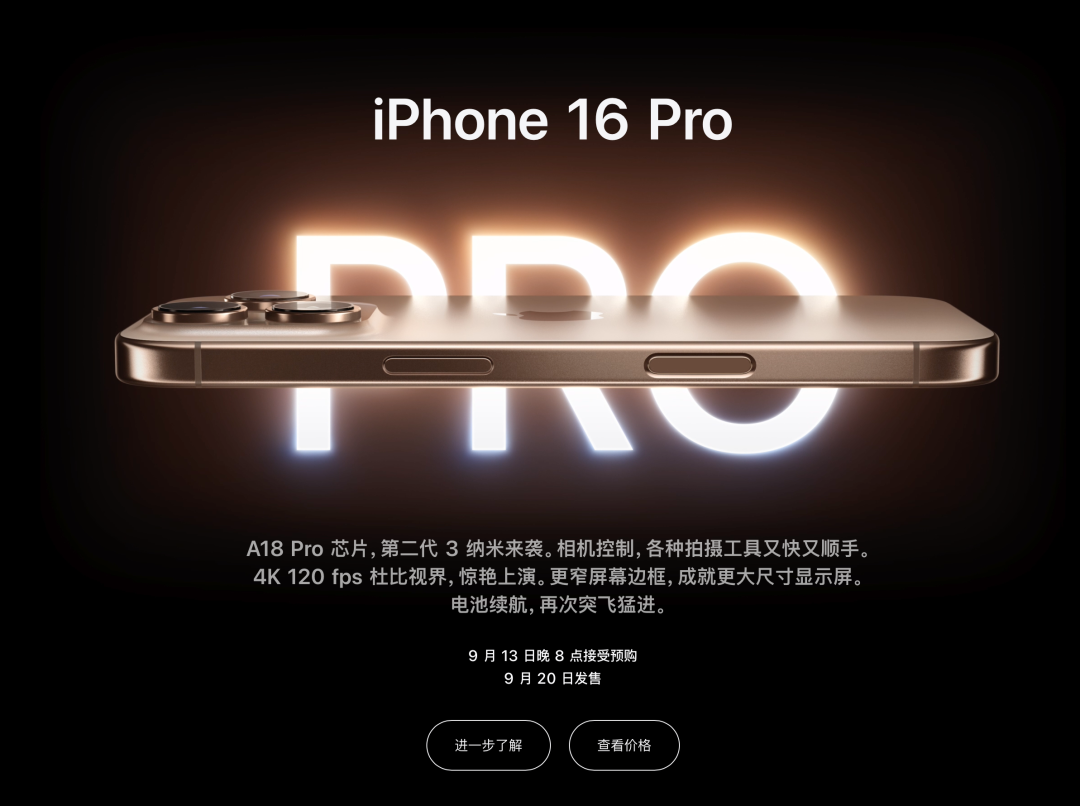
The iPhone 16 Pro introduces a new gold color, which Apple calls Desert Gold
For example, you can use Apple Intelligence's text rewriting feature on any interface, helping you refine emails, chat with friends, and respond to work messages. Most current Android phones also have similar features, but they are often limited to GPT-style chat windows and cannot be accessed within any app.
In Apple's view, it is their hardware and software integration that enables such a seamless smart experience. They describe it as a personalized intelligent system deeply integrated into the iPhone.
At the event, Apple portrayed a system experience akin to an AI butler, handling complex emails, summarizing important points from app notifications, and prioritizing tasks. It also remembers your interactions with friends, finding and sending photos of your Saturday barbecue or reminding you of a TV series recommended by a friend last week.
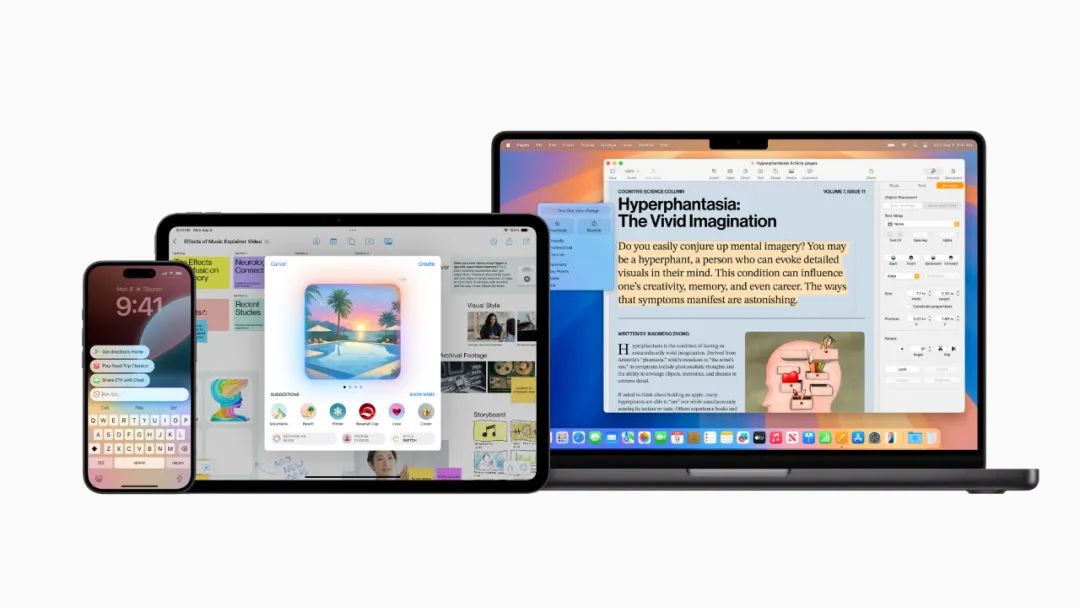
Apple Intelligence / Source: Apple's official website
Similar to the visual perception capabilities demonstrated when GPT-4 was launched, Apple Intelligence can also use the phone's camera to recognize real-world objects, such as asking for reviews of a nearby restaurant, the brand of a bicycle in front of you, or the breed of a dog passing by. This is not a particularly novel feature—Android phones have supported flower recognition for years, and Apple's demonstrated restaurant recognition may require localization support.
Compared to the still-pending AI features, the iPhone series' upgrades to its camera system may be more tangible. The iPhone 16 changes the arrangement of its rear cameras and can capture spatial photos as demonstrated by last year's Vision Pro. The iPhone 16 Pro now supports up to 4K 120 fps Dolby Vision video recording and even adds audio mixing capabilities, significantly enhancing the iPhone's already impressive camera capabilities.
Apple has even introduced a dedicated camera shutter button for the iPhone 16 series, similar to that of a camera, allowing for photography, zooming, and other camera control functions. This is probably the most noticeable upgrade for average consumers in this generation of iPhones. Nokia and Sony have previously introduced dedicated camera buttons on their smartphones as well.
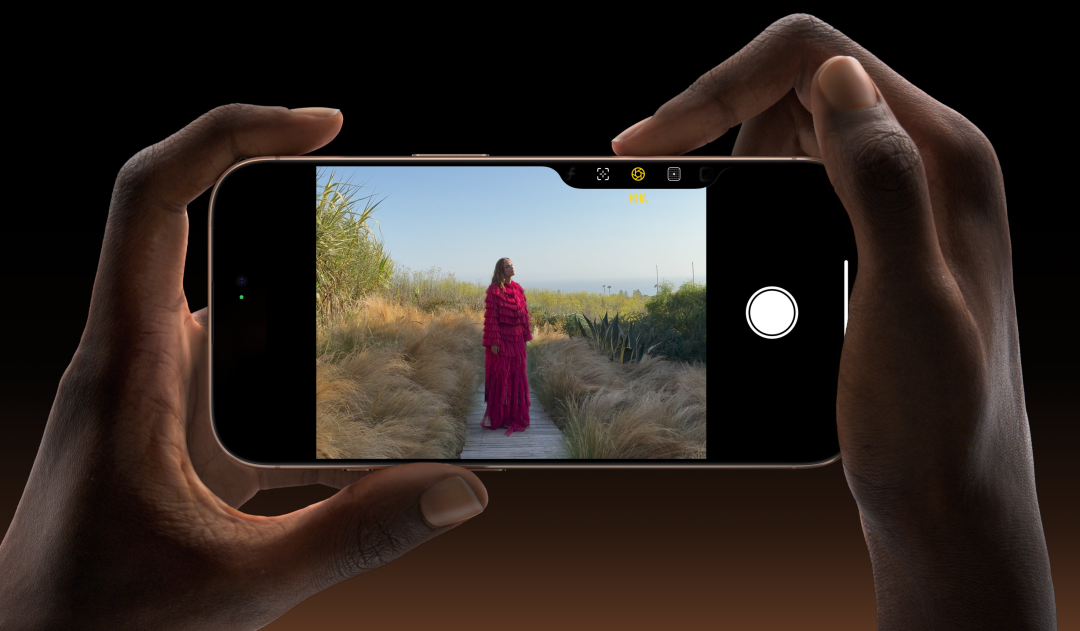
The iPhone 16 adds a dedicated camera shutter button
Embarrassingly, however, the starting storage capacity for the powerful iPhone 16 Pro is still 128GB, which may not be sufficient for 4K video recording.
The newly upgraded A18 Pro chip also seems to have hit a performance bottleneck. It uses TSMC's second-generation 3nm process, but compared to the A17 Pro, its CPU performance has only increased by about 15%, and its GPU performance by only 20%.
The iPhone 16 series is priced the same in mainland China as its predecessor, with Apple adding a note on the pre-order interface stating, "Ready for Apple Intelligence." Since Apple has incorporated many locally running end-side models to process data, previous iPhone models may not be compatible with Apple Intelligence.
This serves as one of the reasons to attract people to order the new model, but consumers in mainland China still have to wait. Apple's official website states that the launch of Apple Intelligence will depend on regulatory approval. In contrast, the updated colors, enhanced photography capabilities, and the new camera shutter button may be more appealing to people.02 | A cautious market and the aggressive Huawei
Market commentary on the latest iPhone 16 series varies, and even though Apple Intelligence could be the most significant update to the iPhone in recent years, some commentators are concerned about the long wait for its availability.
Apple plans to launch the system version with some Apple Intelligence features as early as next month, initially only in the US. English-speaking regions such as Australia, Canada, New Zealand, South Africa, and the UK will receive the feature in December.
Apple has not provided specific launch dates for individual features, stating only at the event that the first batch of features will be available in the Beta version released next month, with more features to follow in subsequent months. It won't be until next year that Apple Intelligence supporting other languages such as Chinese, French, Japanese, and Spanish will be available.
Generative AI services are strictly regulated in various countries, and outside observers predict that Apple may partner with domestic vendors to implement Apple Intelligence. Samsung has already partnered with Baidu for its Galaxy 24 series. After the June WWDC conference, rumors circulated that Apple might collaborate with Baidu, but neither party has made further statements to date.
Baidu's Robin Li expressed some pessimistic views at an internal company meeting, stating that he only hoped to provide cloud model capabilities to phone manufacturers. Li said that Apple Intelligence had little to do with them, "It mainly emphasizes large models on the end, and we have little control over the end... As for future innovations in end-side models, I haven't thought much about it because I'm not that concerned."
Guo Mingqi, an analyst at TF International Securities who has long tracked Apple, predicts that iPhone 16 shipments in the third quarter of this year will increase by 10% year-on-year compared to the previous generation, but not because of strong demand for the iPhone 16 series but due to the low production yield of the periscope lens in the best-selling iPhone 15 Pro Max last year, leading to weak shipments. Guo predicts that iPhone 16 series shipments in the fourth quarter will decrease by 5-7% year-on-year.
This year, iPhone sales have been sluggish globally. According to third-party statistics from IDC, iPhone global sales declined by nearly 10% in the first quarter of this year, the steepest decline among the top five mobile phone brands worldwide. Apple's financial report showed that revenue from the iPhone also declined by 10% year-on-year in the first quarter.
The Chinese market experienced the largest decline. According to third-party firm Counterpoint, iPhone sales in China declined by nearly 20% year-on-year in the first quarter. Huawei's Meta 60 series, which returned to the market last year with 5G capabilities, may be one reason for the decline in iPhone sales, with Huawei phone sales growing by 69.7% year-on-year in the first quarter.
The latest news is that Huawei's HarmonyOS has surpassed Apple's iOS to become the second-largest operating system in China. According to Counterpoint data, HarmonyOS's market share in China increased to 17% in the first quarter of this year, while iOS's share declined to 16%.
Apple has frequently offered discounts in China since the beginning of the year. In January, Apple offered a "New Year Promotion" on its official website, but the discounts were modest, with a maximum savings of only 800 yuan. During the mid-year 618 shopping festival, Apple offered even more significant discounts, with the iPhone 15 series seeing price cuts of over 2000 yuan—a promotion of this magnitude has never been offered before by Apple.
The iPhone 16, which cannot yet launch Apple Intelligence in mainland China, faces an even more competitive market. Since last year, domestic phone manufacturers have continuously launched flagship phones with AI capabilities—albeit inferior to Apple's—but at least functional.
On September 10, Huawei will also hold a product launch event, introducing the HUAWEI Mate XT Masterpiece, a new tri-foldable phone. Yu Chengdong described it as Huawei's pinnacle achievement, turning science fiction into reality.
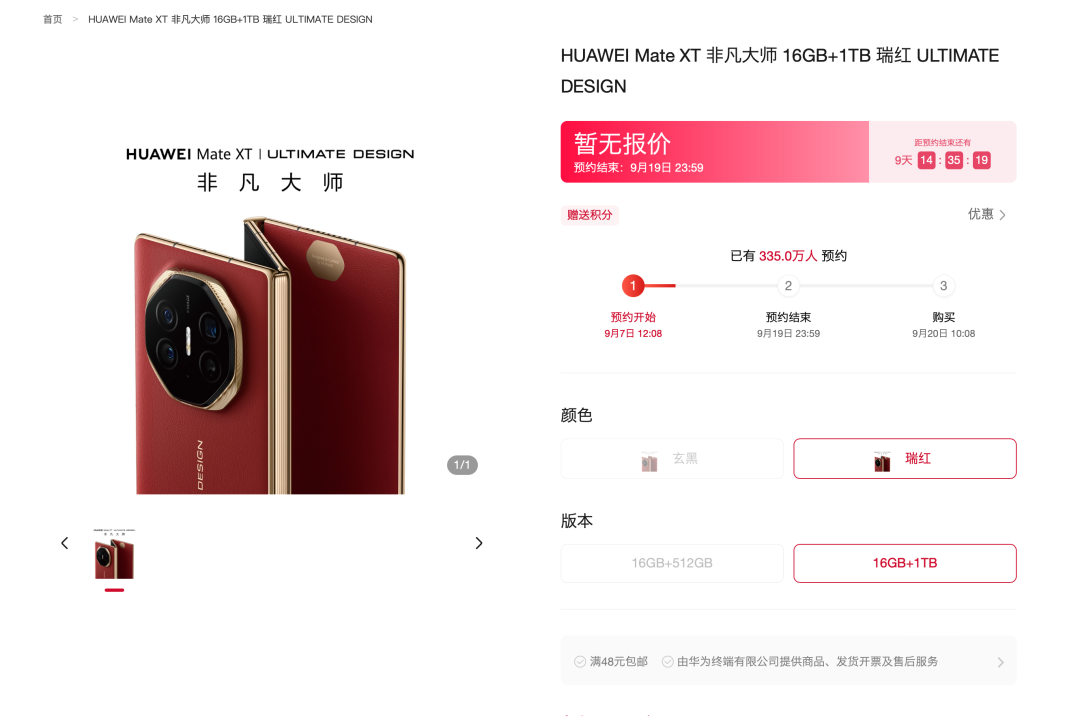
Screenshot from Huawei Mall
Pre-orders for this phone have been booming, with over 3.3 million reservations to date. However, no deposit is required for pre-orders.
©? All rights reserved by Shanshang. Unauthorized reproduction is prohibited.








